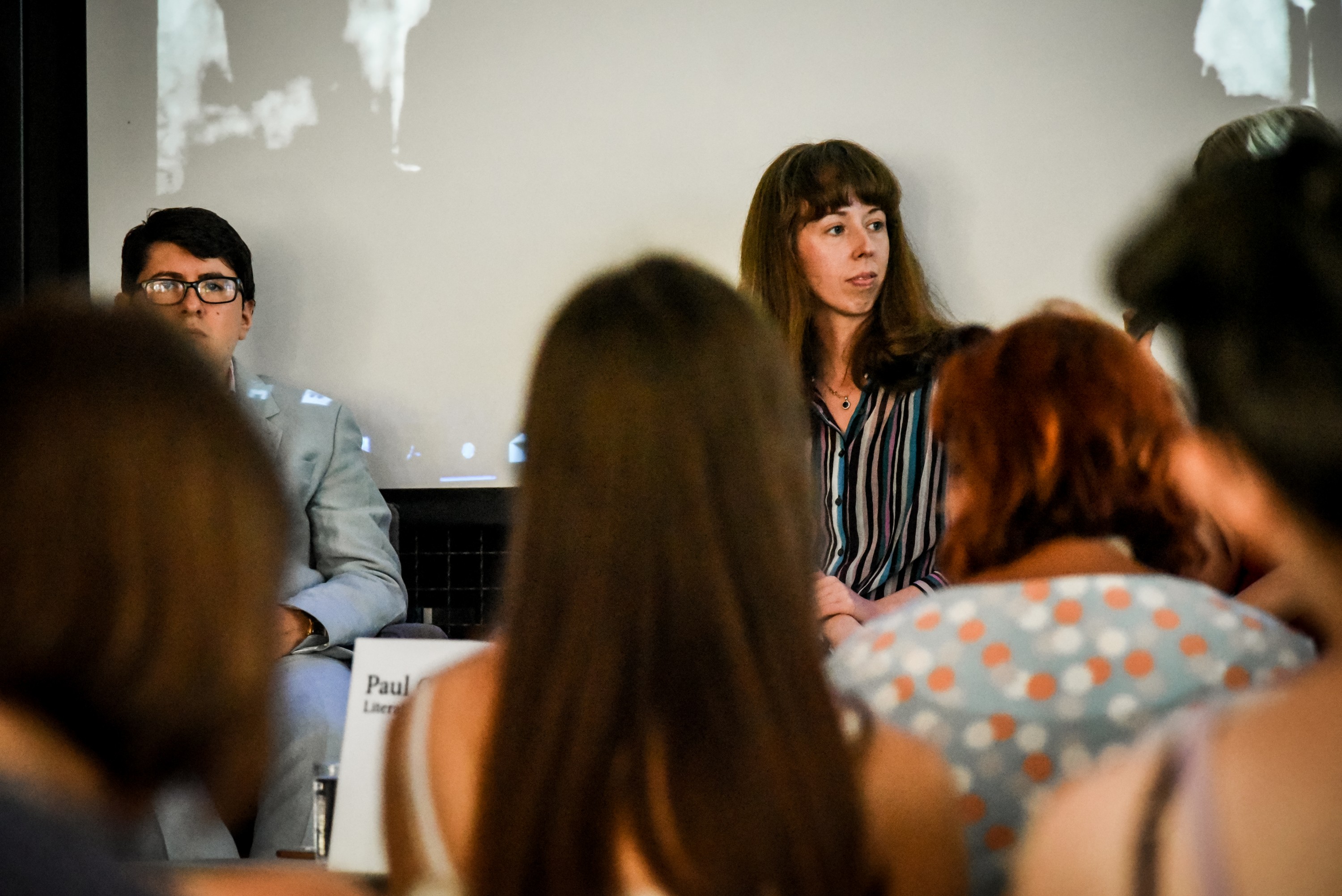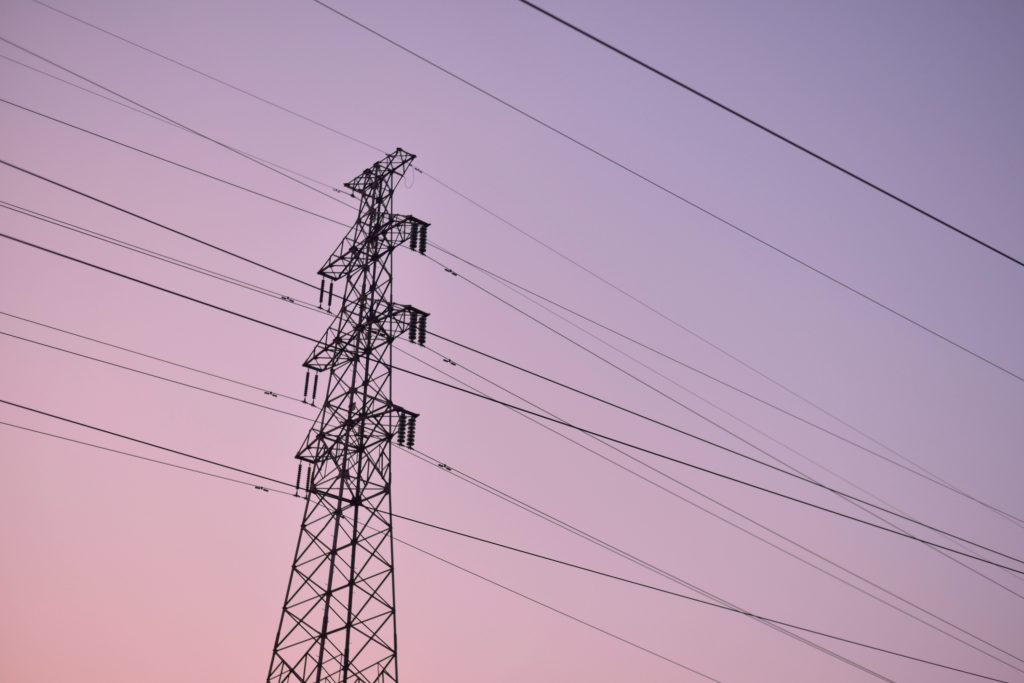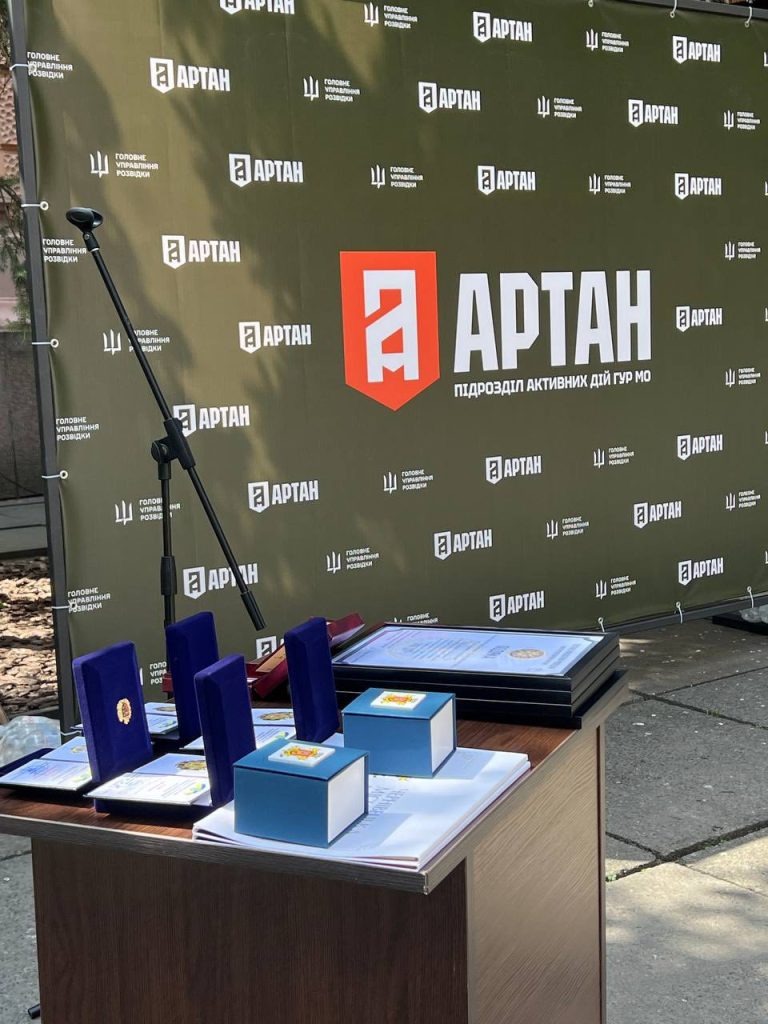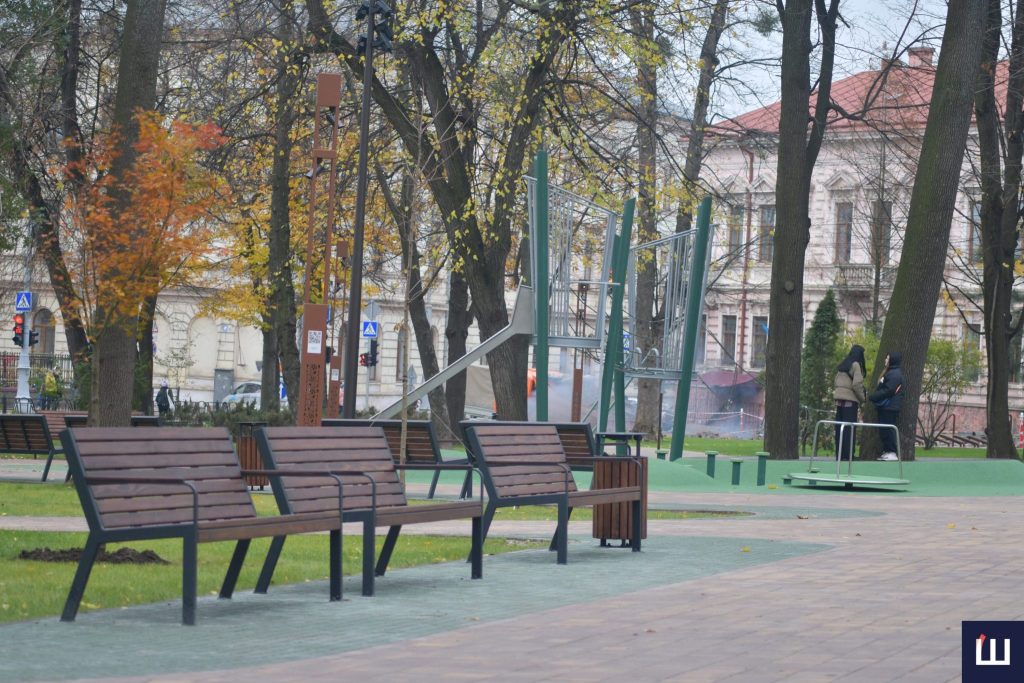About literary work, the Ukrainian Renaissance, life changes and tons of inspiration in a small city, and also why Chernivtsi is not worse than New York, we speak with Caitlyn Garcia.
Ukrainian version/Українська версія
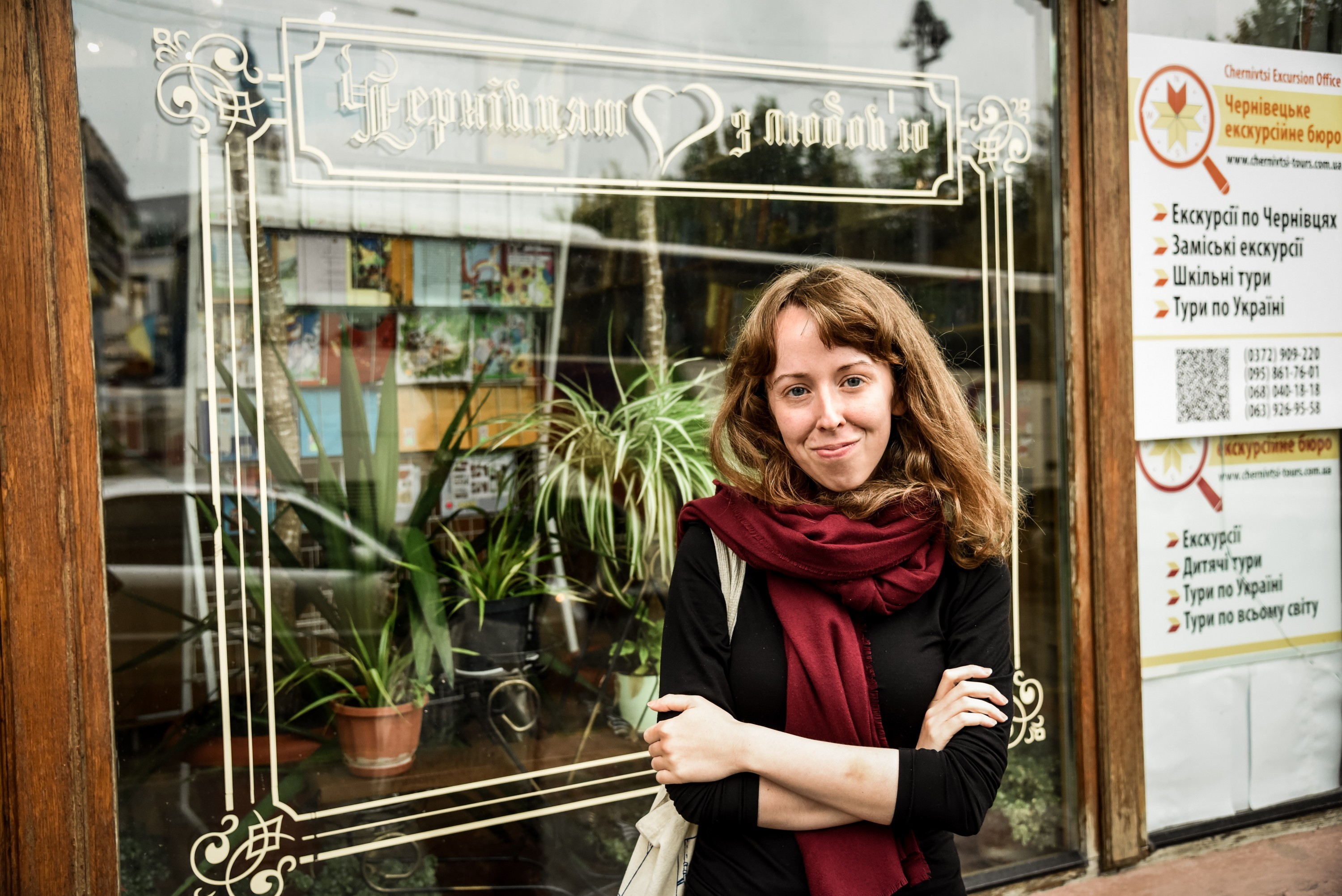
Caitlyn Garcia – Editor-in-chief of the «Apofenie» literary journal, writer, French and English teacher. Originally from New York City, she is currently a PhD candidate at New York University and writing her dissertation on 19th century French science fiction. She decided to write it while living in Ukraine.
She knows Russian and French, and is now studying Ukrainian. Caitlyn was in Chernivtsi last year as a GoCamp volunteer for three weeks, teaching English at one of the schools. And now, she wants to become a resident of Chernivtsi and to remain in Ukraine forever.
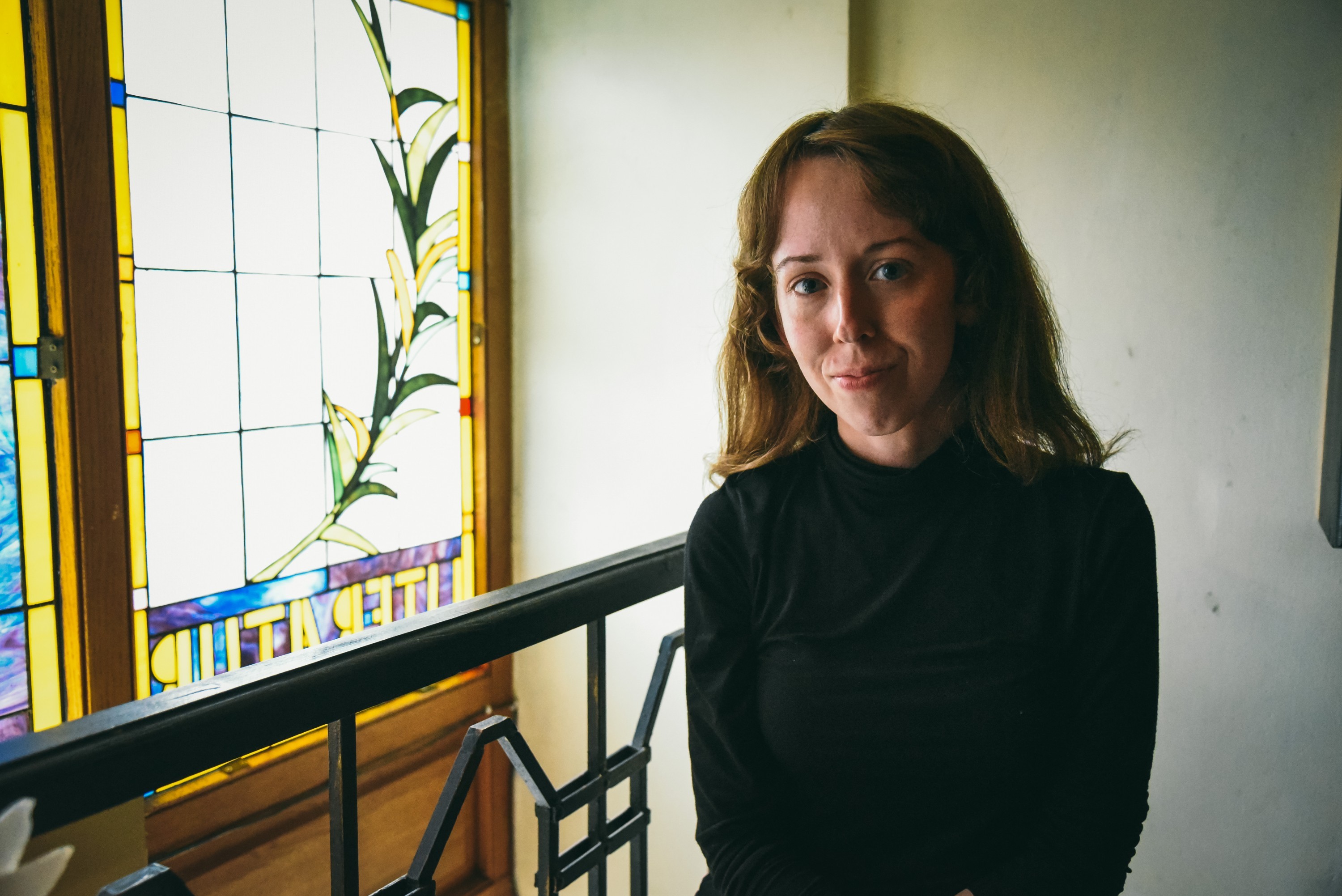
Getting to Ukraine
What was your first impression of Ukraine?
Ukrainians are very friendly, and want to share their culture and history with others. It is like any other country. Of course, in every country there are problems. Often, people here will say to me: “Oh, maybe you don’t like our roads or buses”. But in America the train system is very bad: it’s old, the tickets are expensive, and there are always delays. If I’m traveling abroad, I always try to have some perspective and not to say «this is bad» or «this is better». It’s more important for me to recognize and appreciate what is different.
How is that feeling – to be a foreigner in Ukraine?
I think that I have a different experience as a foreigner, because I speak Russian and I’ve been studying Ukrainian for the past few months. In Chernivtsi, there are very few people who speak English and I sometimes wonder how all of these volunteers that I see around the city manage to walk around without any language skills in Russian or Ukrainian. I do not envy that. It would be a huge challenge, I think, if I spoke only English. I am also lucky that I have many friends here, who helped me during my first days in Ukraine.
How long can you stay in Ukraine, if you’re not a permanent resident?
For ninety days during a one hundred and eighty day period.
How about looking for a job here?
It’s a huge challenge. The problem is that Ukrainian businesses are required by law to pay foreigners a very high monthly salary – much higher than the average Ukrainian citizen. It’s a shame that foreigners are not encouraged to come to Ukraine, unless it’s to live and work in Kyiv for some international organization.
Tell us about your other travel experiences. Do Americans like to travel?
I have travelled to France a lot for my studies. I’ve also been to Czech Republic many times, because best friend lives there and Czech culture and history is very interesting to me. Now, I’m interested in exploring as much as possible of Ukraine and of other countries in Europe.
It is important for Americans to live abroad nowadays. It will make them more open-minded and help them to understand what is happening around the world, because we’re so closed off from it back home. I remember, when I was here in March someone asked me: «What do Americans think about Saakashvilli?» And I said: «Nobody knows who he is. Many Americans do not even know who their senators are». It is always good to see what life is like beyond your own borders.
Americans often don’t learn foreign languages, though, and that is a big problem.
I thought Spanish and French are popular there?
I wouldn’t say that Spanish is popular among Americans yet, only that it is becoming more necessary, because there are more and more immigrants from Latin American countries. Our education system, unfortunately, does not inspire curiosity in children for foreign languages and cultures.
When I was in high school, we were required to learn a foreign language for only two years, and the class met for one hour per week – you’re never going to learn French or Italian this way. And if a student is not encouraged to continue – they will not take the class beyond that second year.
How did you manage everything (like your finances) when you were here last summer as a volunteer?
If you are volunteering for an organization, like GoGlobal, you are not doing it to earn money. A lot of Ukrainians did not understand why foreigners were coming here to teach English for free. Well, I was curious about Ukraine and I wanted to see the country.
Last year I lived with a host family in Chernivtsi. They were so hospitable and kind. I had such a positive first experience in Ukraine thanks to them.
You visited other cities in Ukraine. Why did you choose to live in Chernivtsi?
I haven’t found the proper words to explain why just yet. I don’t know if I want or need to. There is something that calls me back here, to Chernivtsi, something magical about this place. While walking around the city the other day, I thought about Paul Celan, and about Chernivtsi during his time. This city inspires me. It breathes history. When I listen to people here speak Ukrainian, sometimes it sounds like they are singing. It’s beautiful. There are so many little things I love about Chernivtsi.

What do you think about Ukrainian culture?
It is different. Especially when you’re coming from a big city, like New York. Many people were surprised by my decision to leave, because they think everyone wants to live there. My Ukrainian friends from bigger cities, like Kyiv said: «Oh, you are going to be bored in Chernivtsi». I’m not.
In New York, I would always arrive fifteen minutes early to meetings. Americans, especially New Yorkers, do not know how to take a break from working and enjoy life. They are stressed out and worried about losing time. Sometimes, you have to make plans with someone two weeks in advance just to meet with them for a coffee. In Chernivtsi, it seems that people take every day as it is. Life moves more slowly here. I think it is better for your soul, when you take your time, and maybe you will be five minutes late to wherever you need to be, but it won’t be a big problem.
Do people in America ask you about Ukraine?
All the time! Most Americans don’t know anything about Ukraine. Some of them know that there is a war. They worry that it is a dangerous country to visit. I showed my friends and coworkers pictures of Chernivtsi and of other beautiful cities in Ukraine. They were shocked, because it was not what they expected. The stereotypical image of Ukraine for most Americans, for most Westerners, is that it is a grey, industrial, post-Soviet country. I’m always glad to talk about Ukraine with other foreigners, because then they become more curious about it.
Do you miss New York?
Not really. At first, I thought I missed those material comforts, like big cups of coffee from Starbucks – but I only noticed their absence from my life. I got over it very quickly. Sometimes, though, I miss the craziness of New York City.
By the way – coffee here is ten times better here than coffee in America.
Creating is life
Would you call yourself a creative person?
I think if you want to be a creative person, you must love people. For me, sitting in a café and watching the passersby – thinking about their lives, where they come from, who they love, what they’re afraid of – there is always some kind of story to be found there. Simply put, being creative is being an empathetic person.
Your love literature, but have you written anything yourself? What are your other interests?
I’ve spent the past few years of my life devoted completely to literature, largely because of my PhD. I also started a literary magazine six months ago. That has been a lot of work – trying to find writers that aren’t widely published yet in English, or at all. I do write my own fiction – but I write for myself, at the moment.
Everything is interesting to me. When I worked as an English teacher in New York, I had to learn how to carry on long conversations with people that I have very little in common with. Some of my students were foreign diplomats, celebrities, models – I learned a lot from them. I always want to discover new things.
How did the idea for «Apofenie» come to your head?
It was a dream I shared with my best friend for many years. At the height of my PhD coursework, I felt very closed off from literature. You are expected to read books that are connected only to your research interests. I once asked a professor if they had read anything interesting over the summer. They said: «I don’t read books for pleasure anymore». I never want to think in this mindset.

Why the name “Apofenie”? What does it mean?
«Apofenie» is the Czech spelling of the word apophenia – which is the tendency to perceive connections and meanings between unrelated things. It is a question of power, of trying to find strength in the connections we build – that is the universal human experience. In every issue, we’re trying to show a wide range of talent from all kinds of people.
How did it start?
For the first issue, we published friends and friends of friends. One of them was originally a human rights lawyer from Ukraine who participated in Maidan. She’s also from Crimea, so she wrote an essay for us about this. It is very emotional, and very well well-written, even though she is not a writer by profession. That’s a part of our mission statement – to show that everybody can be a creative person, that everybody should find a way to express themselves.
Many people were interested in this essay from our first issue, so we decided to devote the next issue entirely to contemporary Ukrainian literature. I was very pleased, that successful writers like Serhiy Zhadan were open to the idea. I was nobody, asking him to send me a short story for my little magazine and he agreed. It was also very important for me to celebrate the talent of some of the writers from Chernivtsi, too.
What have you published from the writers in Chernivtsi?
For our second issue on Ukrainian literature, we published two literary columns from Oleksandr Boichenko, poetry from Khrystia Vengryniuk and Andriy Tuzhykov, and a short story from Maxym Dupeshko.
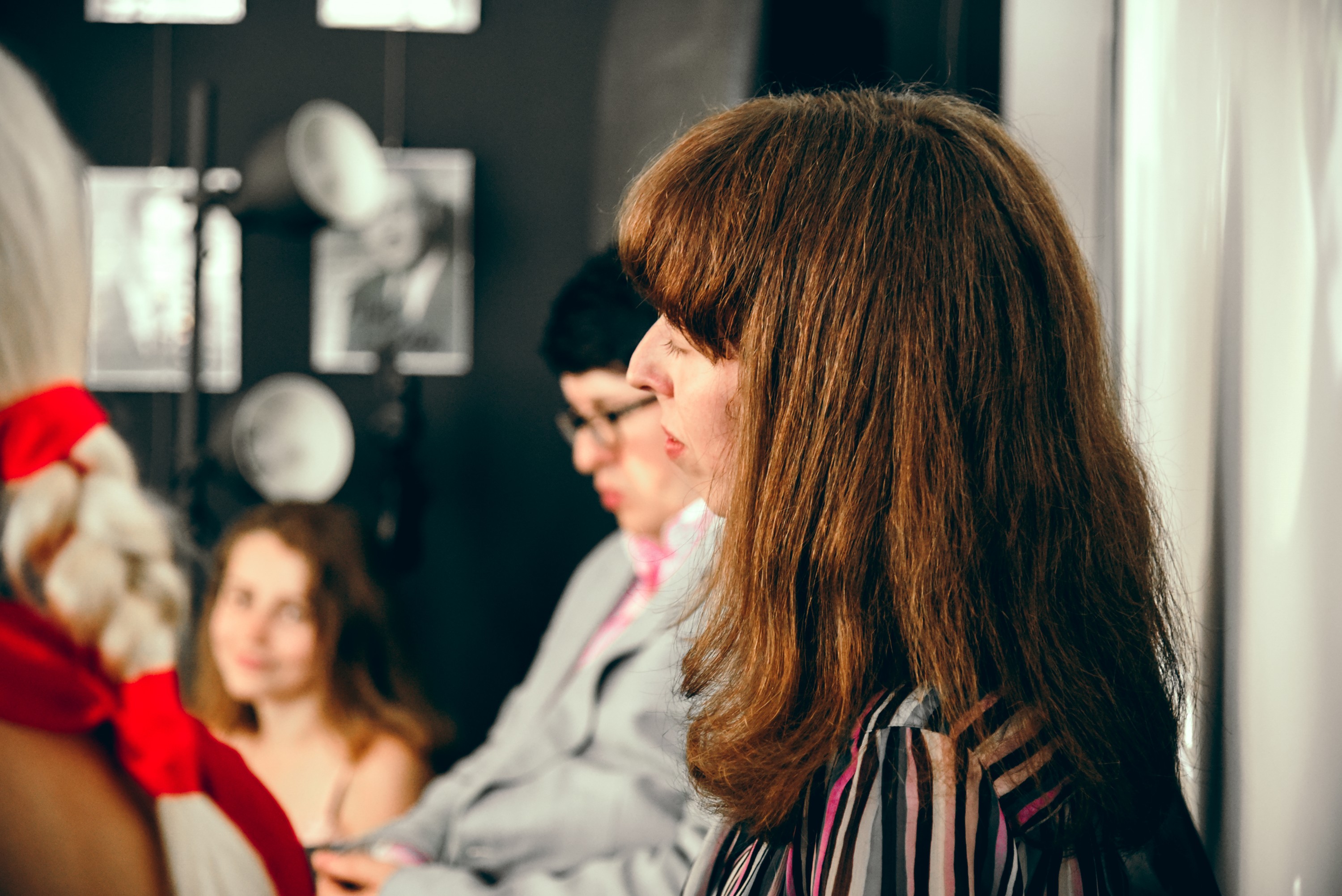
Literature without borders
Why do you think that Ukrainian literature isn’t as well-known internationally?
The problem is that in America very few people read translations. I hope it will change. Zhadan’s novels are starting to get published in English translation – «Mesopotamia» came out this year and «Internat» will come out next year.
Right now there is a literary renaissance in Ukraine. Think about all of the writers who were killed by the Soviet state – all of those minds lost. And now, as Ukraine moves toward a better future, one of the biggest strengths of the country, I think, is it’s literary production.
How can you describe the style of Ukrainian literature? Is it very different from America or from other countries?
One of my main goals in publishing foreign literature in translation is to demystify this notion of «otherness». Literature is universal, and we cannot let the fact that an author is from another country stop us from enjoying their book.
What are your plans as editor-in-chief of the literary magazine ?
We are planning some literary events here in Chernivtsi. We have also fundraised money to do a print version of our second issue on Ukrainian literature, and we’re going to release that later this year. Being here in Ukraine, in Europe is the best option for me, because we’ve been publishing so many international writers and it’s harder to get everything done from America.
«Decision»
Last year you came here as a volunteer. This time you’re here as…?
A future citizen of Ukraine.
Describe Ukrainians in three words.
Warm, resilient, fascinating. Ukrainians inspire me.
What exactly about them inspires you?
I see, that there are problems here and people are frustrated – but that young people really want to make the country better.
It’s your fourth time in Chernivtsi. How are you feeling here now?
I know the city better. I think that if you want to live in a foreign country long term, you should know the language and be involved in the community. I don’t want to be the American who lives in Chernivtsi for years and does not speak Ukrainian – that is a form of arrogance. I hope that I will be able to contribute to the community, and become a good «Chernivchanka».
Julia Dragan

